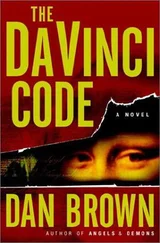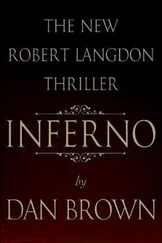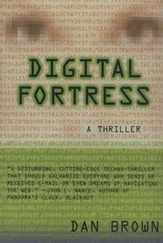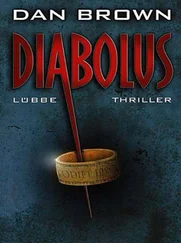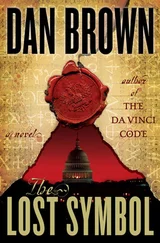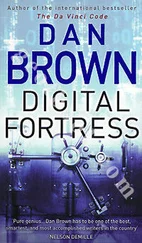Dan Brown - Inferno - A Novel
Здесь есть возможность читать онлайн «Dan Brown - Inferno - A Novel» весь текст электронной книги совершенно бесплатно (целиком полную версию без сокращений). В некоторых случаях можно слушать аудио, скачать через торрент в формате fb2 и присутствует краткое содержание. Год выпуска: 2013, ISBN: 2013, Издательство: Doubleday, Жанр: Старинная литература, на английском языке. Описание произведения, (предисловие) а так же отзывы посетителей доступны на портале библиотеки ЛибКат.
- Название:Inferno: A Novel
- Автор:
- Издательство:Doubleday
- Жанр:
- Год:2013
- ISBN:978-0-385-53786-5
- Рейтинг книги:4 / 5. Голосов: 1
-
Избранное:Добавить в избранное
- Отзывы:
-
Ваша оценка:
- 80
- 1
- 2
- 3
- 4
- 5
Inferno: A Novel: краткое содержание, описание и аннотация
Предлагаем к чтению аннотацию, описание, краткое содержание или предисловие (зависит от того, что написал сам автор книги «Inferno: A Novel»). Если вы не нашли необходимую информацию о книге — напишите в комментариях, мы постараемся отыскать её.
Inferno: A Novel — читать онлайн бесплатно полную книгу (весь текст) целиком
Ниже представлен текст книги, разбитый по страницам. Система сохранения места последней прочитанной страницы, позволяет с удобством читать онлайн бесплатно книгу «Inferno: A Novel», без необходимости каждый раз заново искать на чём Вы остановились. Поставьте закладку, и сможете в любой момент перейти на страницу, на которой закончили чтение.
Интервал:
Закладка:
A hush fell across the cistern as everyone waited, praying to see only green lights.
And then it happened.
On the machine closest to Brüder, a virus-detection light began flashing red. His muscles tensed, and his eyes shifted to the next machine.
It, too, began blinking red.
No .
Stunned murmurs reverberated throughout the cavern. Brüder watched in horror as, one by one, every PCR device began blinking red, all the way across the cistern to the entrance.
Oh, God … he thought. The sea of blinking red detection lights painted an unmistakable picture.
The radius of contamination was enormous.
The entire cistern was teeming with virus.
CHAPTER 97
Robert Langdon stared down at Sienna Brooks, huddled at the wheel of the stolen powerboat, and struggled to make sense of what he had just witnessed.
“I’m sure you despise me,” she sobbed, looking up at him through tearful eyes.
“Despise you?!” Langdon exclaimed. “I don’t have the slightest idea who you are! All you’ve done is lie to me!”
“I know,” she said softly. “I’m sorry. I’ve been trying to do the right thing.”
“By releasing a plague?”
“No, Robert, you don’t understand.”
“I do understand!” Langdon replied. “I understand you waded out into the water to break that Solublon bag! You wanted to release Zobrist’s virus before anyone could contain it!”
“Solublon bag?” Sienna’s eyes flashed confusion. “I don’t know what you’re talking about. Robert, I went to the cistern to stop Bertrand’s virus … to steal it and make it disappear forever … so nobody could ever study it, including Dr. Sinskey and the WHO.”
“Steal it? Why keep it from the WHO?”
Sienna took a long breath. “There’s so much you don’t know, but it’s all moot now. We arrived much too late, Robert. We never had a chance.”
“Of course we had a chance! The virus was not going to be released until tomorrow ! That’s the date Zobrist chose, and if you hadn’t gone into the water—”
“Robert, I didn’t release the virus!” Sienna yelled. “When I went into the water, I was trying to find it, but it was too late. There was nothing there.”
“I don’t believe you,” Langdon said.
“I know you don’t. And I don’t blame you.” She reached into her pocket and pulled out a soggy pamphlet. “But maybe this will help.” She tossed the paper to Langdon. “I found this just before I waded into the lagoon.”
He caught it and opened it up. It was a concert program for the cistern’s seven performances of the Dante Symphony.
“Look at the dates,” she said.
Langdon read the dates and then reread them, puzzled by what he saw. For some reason, he had been under the impression that this evening’s performance was opening night—the first of seven performances to be given during the week, designed to lure people into a plague-infested cistern. This program, however, told a different story.
“Tonight was closing night?” Langdon asked, glancing up from the paper. “The orchestra has been playing all week?”
Sienna nodded. “I was as surprised as you are.” She paused, her eyes somber. “The virus is already out, Robert. It has been for a week.”
“That can’t be true,” Langdon argued. “ Tomorrow is the date. Zobrist even made a plaque with tomorrow’s date on it.”
“Yes, I saw the plaque in the water.”
“Then you know he was fixated on tomorrow .”
Sienna sighed. “Robert, I knew Bertrand well, better than I ever admitted to you. He was a scientist, a results-oriented person. I now realize that the date on the plaque is not the virus’s release date. It’s something else, something more important to his goal.”
“And that would be …?”
Sienna gazed up solemnly from the boat. “It’s a global-saturation date—a mathematical projection of the date after which his virus will have propagated across the world … and infected every individual.”
The prospect sent a visceral tremor through Langdon, and yet he couldn’t help but suspect that she was lying. Her story contained a fatal flaw, and Sienna Brooks had already proven she’d lie about anything.
“One problem, Sienna,” he said, staring down at her. “If this plague has already spread all over the world, then why aren’t people getting sick?”
Sienna glanced away, suddenly unable to meet his gaze.
“If this plague has been out a week,” Langdon repeated, “why aren’t people dying?”
She turned slowly back to him. “Because …” she began, the words catching in her throat. “Bertrand didn’t create a plague.” Her eyes welled up again with tears. “He created something far more dangerous.”
CHAPTER 98
Despite the flow of oxygen that passed through her respirator, Elizabeth Sinskey felt light-headed. Five minutes had passed since Brüder’s PCR devices had revealed the horrifying truth.
Our window for containment closed long ago .
The Solublon bag had apparently dissolved sometime last week, most likely on the opening night of the concert, which Sinskey now knew had been playing for seven nights straight. The few remaining shreds of Solublon attached to the tether had not disappered, only because they had been coated with an adhesive to help secure them to the tether’s clasp.
The contagion has been out for a week .
Now, with no possibility of isolating the pathogen, the SRS agents huddled over samples in the cistern’s makeshift lab and assumed their usual fallback position—analysis, classification, and threat assessment. So far, the PCR units had revealed only one solid piece of data, and the discovery surprised no one.
The virus was now airborne .
The contents of the Solublon bag had apparently bubbled up to the surface and aerosolized viral particles into the air. It wouldn’t take many , Sinskey knew. Especially in such an enclosed area .
A virus—unlike a bacteria or chemical pathogen—could spread through a population with astounding speed and penetration. Parasitic in their behavior, viruses entered an organism and attached to a host cell in a process called adsorption. They then injected their own DNA or RNA into that cell, recruiting the invaded cell, and forcing it to replicate multiple versions of the virus. Once a sufficient number of copies existed, the new virus particles would kill the cell and burst through the cell wall, speeding off to find new host cells to attack, and the process would be repeated.
An infected individual would then exhale or sneeze, sending respiratory droplets out of his body; these droplets would remain suspended in the air until they were inhaled by other hosts, and the process began all over again.
Exponential growth , Sinskey mused, recalling Zobrist’s graphs illustrating the human population explosion. Zobrist is using the exponential growth of viruses to combat the exponential growth of people .
The burning question now, however, was: How would this virus behave?
Coldly stated: How will it attack its host?
The Ebola virus impaired the blood’s ability to coagulate, resulting in unstoppable hemorrhaging. The hantavirus triggered the lungs to fail. A whole host of viruses known as oncoviruses caused cancer. And the HIV virus attacked the immune system, causing the disease AIDS. It was no secret in the medical community that, had the HIV virus gone airborne, it could have been an extinction event.
So what the hell does Zobrist’s virus do?
Whatever it did, the effects clearly took time to reveal themselves … and nearby hospitals had reported no cases of patients showing symptoms that were out of the ordinary.
Читать дальшеИнтервал:
Закладка:
Похожие книги на «Inferno: A Novel»
Представляем Вашему вниманию похожие книги на «Inferno: A Novel» списком для выбора. Мы отобрали схожую по названию и смыслу литературу в надежде предоставить читателям больше вариантов отыскать новые, интересные, ещё непрочитанные произведения.
Обсуждение, отзывы о книге «Inferno: A Novel» и просто собственные мнения читателей. Оставьте ваши комментарии, напишите, что Вы думаете о произведении, его смысле или главных героях. Укажите что конкретно понравилось, а что нет, и почему Вы так считаете.

